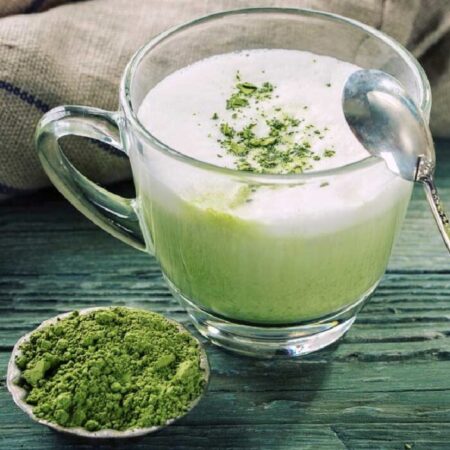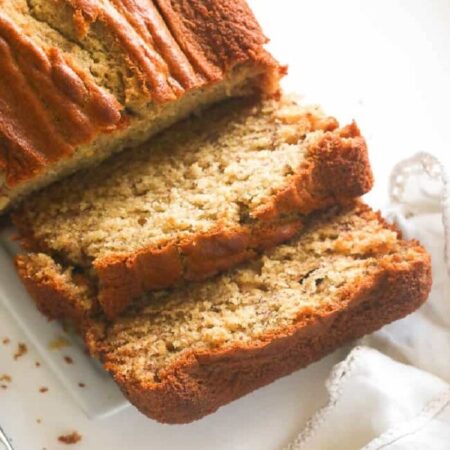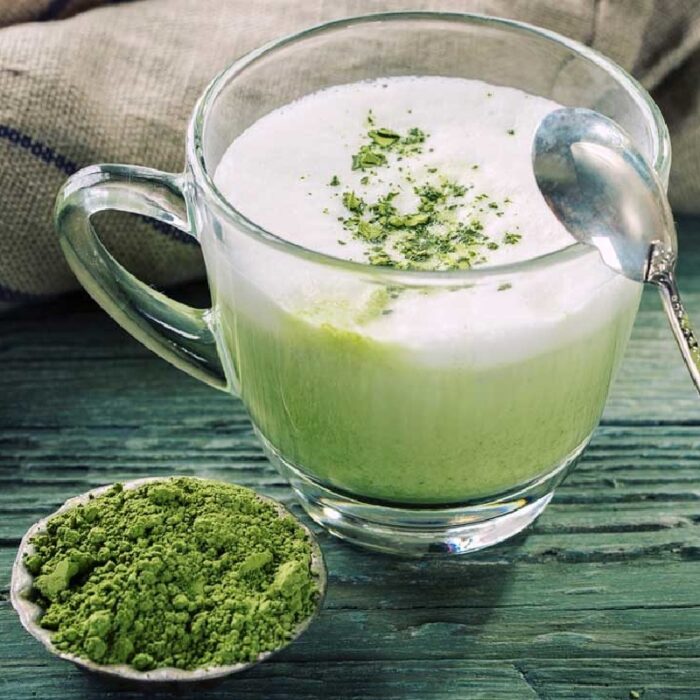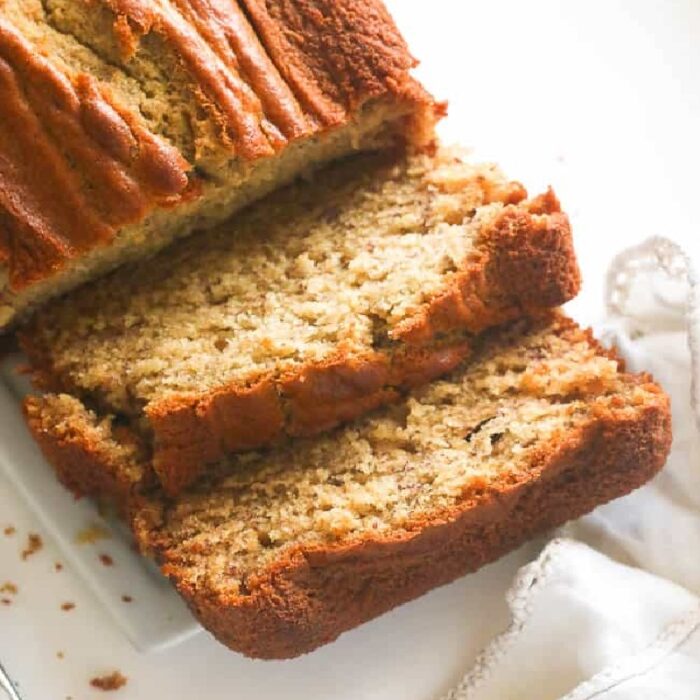35 Best Calcium Rich Foods For Healthy Bones And Teeth
Fuel Your Body's Bones and Teeth with These Nutrient-Dense Calcium Foods for Optimal Health and Wellness
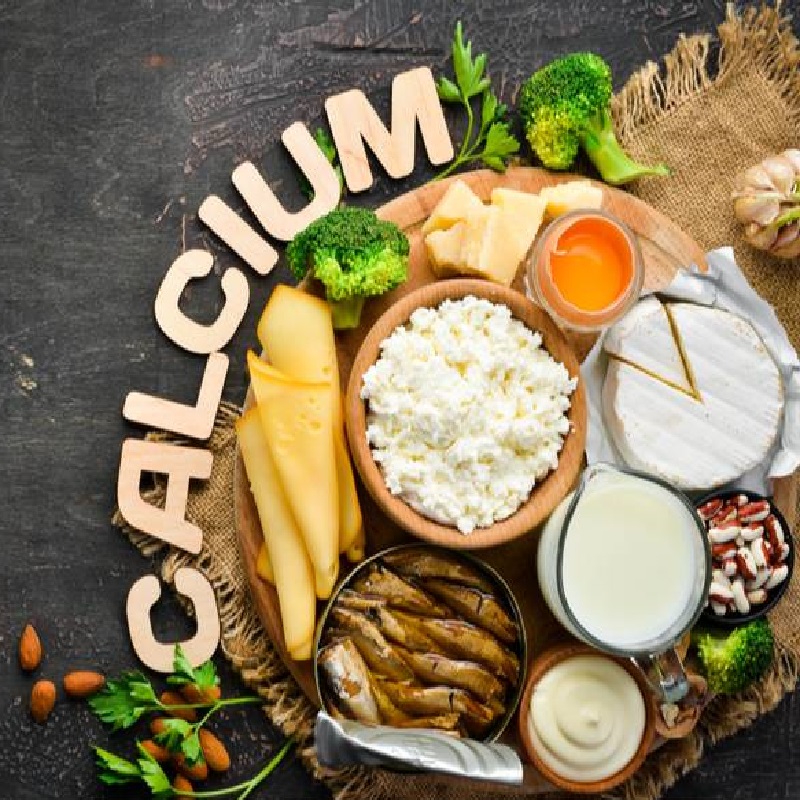
Calcium is one of the necessary minerals that help keep your body healthy and strong. It is also a vital mineral for bone health and is the most abundantly available in the body. By including the best Calcium rich foods in your diet, you can naturally deal with a deficiency of this mineral.
The bones and teeth have about 99% Calcium in our body. It helps maintain your bones’ health and strength, helps your muscles contract, and enables your blood to clot. So, to reap the benefits and deal with its deficiency with Calcium-rich foods mentioned in this article.
What Is Calcium?
Calcium is one of the minerals prominently found in our bodies. Calcium is essential in our body to perform several functions along with maintaining strong bones. You can find healthy sources of calcium that will support the structure and hardness of bones and teeth. Seafood, yogurt, beans, almonds, etc., are some foods high in calcium.
Are Calcium Rich Foods Good For The Health Of Your Body?
Calcium is a necessary mineral for our body that aids in growth and supports you in performing various activities. It is also an essential component of the circulatory system, helps your nervous system function, and calcium sustains the entire skeletal system and muscles (1).
Fat-soluble nutrients like vitamins A, D, E, and K do not get assimilated into your body without calcium. The deficiency of this mineral may result in a chain of disorders. It also helps with hormone release, contraction of muscles, message transmission through nerves, etc.
Calcium-rich foods play a prominent role in naturally supplying the required amount of this mineral.
How Much Calcium Does Your Body Need in a Day?
How many grams of calcium do you need per day to meet your calcium needs? According to the National Institutes of Health, here are the recommended daily value for calcium:
- Birth to 6 months, 200 mg
- Infants 7–12 months, 260 mg
- Children 1–3 years, 700 mg
- Children 4–8 years, 1,000 mg
- Children 9–13 years, 1,300 mg
- Teens 14–18 years, 1,300 mg
- Adults 19–50 years, 1,000 mg
- Adult men 51–70 years, 1,000 mg
- Adult women 51–70 years, 1,200 mg
- Adults 71 years and older, 1,200 mg
- Pregnant and breastfeeding teens, 1,300 mg
- Pregnant and breastfeeding adults, 1,000 mg
Top 35 Best Calcium Rich Indian Foods
We have listed some of the best healthy foods to increase calcium. Let’s have a look into them and include them in your diet:
1. Banana Rich in Calcium
Banana is a fruit that is available abundantly in every season. It offers you essential nutrients for your health, such as potassium, calcium, and magnesium. Banana also protects your body from free radicals since it is high in antioxidants (2).
Calcium Content
- One medium-sized banana has 5.9 gms of calcium.
How to Include In Your Diet
- You can eat bananas as a fruit, prepare a smoothie, or add them to your cereal.
2. Moringa leaf(Malunggay)
Moringa leaf or drumstick leaves is very nutritious as it is a healthy addition to your diet. It keeps your bones healthy and strong since it has high amounts of calcium and phosphorus making it considered as the best food source of calcium. Moringa leaves may also heal damaged bones and treat arthritis with their anti-inflammatory properties (3).
Calcium Content
- Moringa leaf gives you 1000mg of calcium, and moringa powder can provide you with more than 4000 mg of calcium.
How to Include In Your Diet
- You can use moringa leaf or powder to prepare tea, add some to your smoothies, or in soups.
3. Dates
Dates are some of the nutritious fruits that reduce the risk of many diseases when eaten in moderation. It is a rich source of calcium, sodium, potassium, magnesium, and iron. It also has high amounts of antioxidants, fiber, fat, protein, and vitamins (4).
Calcium Content
- 100 grams of dates contain 39 mg of calcium.
How to Include In Your Diet
- You can consume dates or add them to several desserts as natural sweeteners.
4. Custard Apple
Custard apple is a unique tropical fruit that boosts immunity that helps fight inflammation since it is rich in fiber, vitamins, and minerals. It also helps eliminate free radicles from your body because it has high amounts of antioxidants like vitamin C. Custard apple is a good source of Calcium, potassium, niacin, iron, and magnesium (5).
Calcium Content
- One cup of custard pulp has 60 mg of calcium.
How to Include In Your Diet
- You can consume custard apples as a fruit.
5. Cumin(Jeera)
Cumin is one of the food items containing reasonable amounts of calcium along with several other health benefits. Many of the health benefits of cumin come from the antioxidants present in it. It also has minerals such as iron, magnesium, and calcium (6).
Calcium Content
- One tbsp of cumin seeds contains 19.6mg of calcium.
How to Include In Your Diet
- You can add jeera to your day-to-day dishes.
6. Makhana
Makhana is one of the popular high-energy snacks that are loved by everyone, irrespective of age. Also called fox nuts, makhana is low in fat and a rich source of protein, fiber. It is also an excellent option for bone health since it has high Calcium content. Fox nuts also reduce kidney issues with their astringent properties. Phosphorous, potassium, and magnesium are some of the minerals present in makhana.
Calcium Content
- 100 grams of makhana has 60mg of calcium.
How to Include In Your Diet
- You can roast them and eat them as snacks or prepare kheer with them.
7. Ragi
Ragi is one of the foods with a lot of calcium and is also known as finger millet. It is considered the best grain for people who have diabetes as it is a rich source of fiber and calcium. Ragi helps provide high amounts of iron and calcium to your body, strengthening your bones (7). So, instead of popping pills, add ragi to your diet to get the maximum of calcium.
Calcium Content
- 100 grams of ragi consists of 344 mg of calcium.
How to Include In Your Diet
- You can mix ragi powder with milk or buttermilk or prepare rotis and dosas.
8. Yakult
Yakult is a delicious probiotic fermented milk drink and one of the best sources of calcium. It has a Lactobacillus casei strain, an exclusive probiotic that helps build immunity and improve the digestive process. It helps contribute to the immune system’s good functioning since it has vitamin C, fibers, and at least 6.5 billion Lcs.
Calcium Content
- One bottle of Yakult has 36.2 mg of calcium.
How to Include In Your Diet
- You can add a bottle of Yakult to your diet.
9. Fortified Cereals:
Fortified foods are yet another calcium food source. Many of fortified cereals can deliver up to 1000 mg of calcium per serving before adding milk. Ensure to spread your intake of fortified foods throughout the day since your body cannot absorb all the calcium at once (8).
To make sure how much these mineral-fortified foods contain, read the product label since calcium can be fortified in grain-based foods.
Calcium Content:
- 8 oz of fortified cereals has about 100 to 1000 mg of calcium.
How to Include In Your Diet
- You can add fortified cereal of your choice for your breakfast.
10. Okra
Like the lady’s finger, Okra is one of the common vegetables used in many Indian households. It is a rich source of vitamins K1 and C, a good amount of protein and fiber, low in carbs and calories (9). Consuming a good amount of Okra helps benefit bone structure, muscle mass, and weight management since it has enough protein.
Calcium Content
- One single cup of Okra has 82 mg of calcium.
How to Include In Your Diet
- You can roast, pickle, fry, or boil this vegetable to include in your diet.
11. Almonds
Almonds are high in calcium and have healthy fats, vitamin E, magnesium, protein, and fiber. It is also helpful in promoting weight loss and maintaining your heart and colon (10). Almonds are one of the healthiest Calcium-rich foods, and the recommended Calcium intake value is 12.5% making them a perfect option.
Calcium Content
- Half a cup of almonds contains 126 mg of calcium.
How to Include In Your Diet
- Include Almonds as part of your breakfast; adults can consume half a cup of presoaked almonds.
12. Sesame Seeds
The delightful taste and texture of sesame seeds make them one of the highly used ingredients in Indian cooking, and it is also a rich source of calcium. Sesame seeds have beneficial plant compounds and good sources of healthy fat, protein, B vitamins, minerals, fiber, and antioxidants (11). Sesame seeds give you maximum Calcium content when you use them in substantial amounts rather than as a sprinkle on buns.
Calcium Content
- One ounce of sesame seeds has 279 mg of calcium.
How to Include In Your Diet
- You can combine jaggery and sesame seeds, curries, rotis, etc.
13. Oranges
Orange is a highly nutritious and low-calorie citrus fruit that is a rich source of calcium. Oranges enhance your body’s immune system with the presence of vitamin C (12). You can get an average of 5 % Calcium from oranges, which helps strengthen your bones.
Calcium Content
- 1 orange has up to 53 mg of calcium.
How to Include In Your Diet
- You can either drink orange juice twice a day or eat the whole fruit as per your choice.
14. Quinoa
The health benefits of quinoa have been making it one of the rapidly growing whole grains in popularity. It has vitamin E, which acts as an antioxidant that protects your body from many health issues (13). A person can get about 3% of calcium from quinoa, and it is also a non-dairy source of calcium. It is a well-liked grain among both kids and adults.
Calcium content
- 1 cup of quinoa gives you about 32 mg of calcium.
How to Include In Your Diet
- Prepare a healthy meal with quinoa seeds as a night meal or breakfast.
15. Skim Milk
Milk is one of the main sources of calcium. Thanks to the fortification process, skim milk has fewer calories and higher amounts of vitamins when compared to whole milk. It is the only source that gives you the required amount of calcium in one go (14). Milk is the best choice for children for calcium rich foods in daily diet.
Calcium Content
- 1 cup of skim milk provides 301 mg of calcium.
How to Include In Your Diet
- You can consume a glass of skim milk early in the morning or once before going to bed.
16. Kale
Kale is one of the cruciferous vegetables with green leaves that provides nutrition to your entire body. Many people use kale either as a garnish or in smoothies since it gives 9% of daily calcium for your body. Kale has a range of B vitamins and antioxidants that provide better functioning for your body (15).
Calcium Content
1 cup of kale gives provides 91 mg of calcium.
How to Include In Your Diet
- You can include kale in soups, salads, smoothies, etc.
17. Chia Seeds
Chia seeds are considered one of the healthy and nutritious foods that are helpful for our body. Despite the size, chia seeds provide your body with various micronutrients, omega-3 fatty acids, protein, and fiber, and are one of calcium’s best dietary sources (16). They provide your body with 18% of the required dietary intake of calcium.
Calcium Content
- 1 ounce of chia seeds provides 177 mg of calcium.
How to Include In Your Diet
- You can add chia seeds to milk, yogurt, or Oatmeal.
18. Raw Spinach
Spinach is yet another food that is a rich source of calcium. When taken in raw, it provides nutrients like potassium, fiber, vitamin K, riboflavin, niacin, vitamin C, folate, and a good amount of calcium. Spinach is considered a vegetarian option for calcium-rich foods since it has vitamin A in abundance (17).
Calcium Content
- 1 cup of raw spinach provides 30 mg of calcium.
How to Include In Your Diet
- You can add raw spinach to your salads or sandwiches.
19. Black-strap Molasses
Black-strap molasses is a by-product of sugar cane, one of the best calcium-rich foods for bones. The high amounts of calcium and magnesium present in black-strap molasses strengthen your bones and provide 8% of the daily value of calcium for your body. It also has high amounts of potassium and iron which play an essential role in building bones (18).
Calcium Content
- 1 tbsp of black-strap molasses provides 42 mg of calcium.
How to Include In Your Diet
- You can add molasses to your cereals or milk.
20. Sardines
Sardine is one of the non-vegetarian options for calcium-rich fishes. Consuming it as food will strengthen your bones. It is an oily and nutrient-rich fish with a good amount of omega fatty acids and helps you fight against many health issues. Sardines lower cholesterol, reduce inflammation, and promote bone health. You can fight bone diseases and osteoporosis by adding this oily fish to your diet.
Calcium Content
A single sardine provides 352 mg of calcium.
How to Include In Your Diet
- To provide your body with the required nutrients, consume sardines thrice a week.
21. Soy Milk
Soy milk is a plant-based drink that provides you with healthy fats that your body cannot form on its own, like omega-3 fatty acids. It helps support healthy muscles on organs maintaining the overall health of your body (19). Soy milk is a vegan replacement for whole milk and is considered one of the best Calcium-rich foods for adults.
Calcium Content
- 1 cup of soy milk provides 300 mg of calcium.
How to Include In Your Diet:
- You can include soy milk in your breakfast or dinner.
22. Oatmeal
Oatmeal is the most calcium rich food that has gained popularity as a healthy breakfast and dinner option as an alternative to dairy food options. Oats are good for digestive health as it has high amounts of dietary fiber and some vitamins and minerals (20). You can add some fruits to Oatmeal to enhance the taste and nutrition.
Calcium Content
- 1 cup of Oatmeal provides 85 mg of calcium.
How to Include In Your Diet
- Oatmeal is a perfect breakfast option, either with milk or buttermilk.
23. White Beans
White beans are also known as cannellini beans and are one of the wide varieties of common beans. It is a food with calcium in high amounts and provides 16% recommended dietary intake of calcium. It strengthens your bones with the presence of folic acid and vitamins (21). These beans can be added to soups giving them a nutty flavour.
Calcium Content
- 1 cup of white beans provides 162 mg of calcium.
How to Include In Your Diet
- You can add white beans to your soups.
24. Swiss Cheese
Swiss cheese is one of calcium’s best sources and has high amounts of protein that play a significant role in bones’ formation and development. It also contributes to healthy blood flow and muscles by ensuring the health of the bones. Swiss cheese provides 22% required dietary intake of calcium.
Calcium Content
- 1 slice of swiss cheese provides 222 mg of calcium.
How to Include In Your Diet
- You can consume swiss cheese with bread slices for breakfast.
25. Dried Figs
Dried figs have high amounts of copper and vitamin B12 and various nutrients that give your body much-needed energy. It is also a good source of fiber, potassium and one of the best calcium-rich dry fruits (22). It is a snack that is liked by both kids and adults alike.
Calcium Content
- 1 dried fig provides 14 mg of calcium.
How to Include In Your Diet
- You can eat dried figs either directly or by frying them.
26. Soybeans
Soybeans are some of the best Calcium-rich foods. It has beneficial plant compounds such as flavones along with high amounts of vitamins and minerals. Soybeans also have a healthy dose of fat and carbs with high amounts of protein. It is calcium-rich food that increases bone density for kids (23).
Calcium Content
- 1 cup of soybeans provides 261 mg of calcium.
How to Include In Your Diet
- You can add soybeans to your meals.
27. Plain Yoghurt
Yogurt is one of the foods with high amounts of calcium that is a regular part of meals in every household. It has every vital nutrient required for the maintenance of your health. Yogurt protects your bones from several health issues by strengthening bones. It also has high protein amounts that improve the digestive process (24).
Calcium Content
- 1 cup of plain yogurt provides 296 mg of calcium.
How to Include In Your Diet
- You can consume yogurt whenever you want for breakfast, lunch, and dinner.
28. Turnip Greens
Turnip greens are one of the vegetables that have calcium in abundance. It has fiber, iron, potassium, and vitamin A that offers several other benefits for your health. To maintain proper health and maintenance, add turnip greens to your diet. It also has a good amount of magnesium which improves the absorption of calcium.
Calcium Content
- 1 cup of turnip greens provides 197 mg of calcium.
How to Include In Your Diet
- You can add turnip greens to your diet in salads or meals.
29. Broccoli
We all have heard about the vegetable broccoli which vaguely resembles a tree and offers several health benefits. It also provides support in improving the immune system, blood pressure, and heart health. Regular intake of broccoli strengthens your bones and is one of calcium’s best plant sources (25).
Calcium Content
- 1 cup of broccoli provides 43 mg of calcium.
How to Include In Your Diet
- You can eat broccoli thrice a week as a vegetable.
30. Brazil Nuts
Brazil nuts are highly nutritious nut that has a nutty flavour and buttery texture. The mineral selenium is available abundantly in brazil nuts supports the functioning of your immune system, heart, and brain and reduces inflammation to a great extent (26). It also has high amounts of calcium and is loved by everyone irrespective of age, especially kids.
Calcium Content
- 1 cup of brazil nuts provides 213 mg of calcium.
How to Include In Your Diet
- You can consume brazil nuts directly.
31. Tofu
Tofu is one of the best calcium-enriched foods, which is not only nutritious but also tastes delicious. Suitable for people of age, it provides 20% of calcium’s required dietary intake in our body and is a gluten-free product.
Calcium Content
- Half a cup of tofu provides 831mg of calcium.
How to Include In Your Diet
- Tofu makes for a delicious and nutritious addition to your meal.
32. Arugula
Arugula is a less known cruciferous vegetable that provides similar benefits as other vegetables of this family. It is one of the top vegetables with a good amount of calcium. There are several health benefits associated with arugula, and it adds a bright look to your salad along with nutrition.
Calcium Content
- 1 cup of arugula provides 33 mg of calcium.
How to Include In Your Diet
- You can add arugula to any vegetarian salad.
33. Sunflower Seeds
Sunflower seeds have several plant compounds, linoleic fatty acids, protein, magnesium, Vitamin E, which play an essential role in maintaining your body. Vitamin E and selenium act as antioxidants that prevent free radical damage (27). Sunflower seeds also strengthen your bones since it has high amounts of calcium.
Calcium Content
- The ½ cup of sunflower seeds provides 18 mg of calcium.
How to Include In Your Diet
- You can add sunflower seeds during dinner to the vegetables.
34. Flax seeds
Flax seeds are one of the best Calcium-rich foods that can be easily included in your diet. It provides 2% of the required dietary intake of calcium. It also has a high amount of protein and rich source of omega-3 fatty acids (28).
Calcium Content
- 1 tablespoon of flaxseed provides 18 mg of calcium.
How to Include In Your Diet
- You can sprinkle flax seeds into your salad or juice.
35. Herring
Herring is a fish with oily and flaky skin that is a rich source of healthy fats and calcium. It also has a good amount of vitamins K, and A enhances the development and repair of muscles. By adding herring to your diet, you can maintain the health of your bones efficiently.
Calcium Content
- 1 fillet of herring provides 185 mg of calcium.
How to Include In Your Diet
- You can consume this fish twice a week for good Calcium consumption.
Side Effects Of Too Much Calcium
What can too much calcium do to the body? It’s unlikely that you’d get an overwhelming amount of calcium from food sources alone. In fact, it’s believed that most adults in the U.S., and many other developed nations too, do not get enough calcium on a daily basis from their diets.
However in very high amounts — such as from foods and supplements combined — calcium may cause side effects. These can include nausea, bloating, constipation (especially calcium carbonate supplements), dry mouth, abdominal pain, irregular heartbeat, confusion and kidney stones.
If you experience indigestion, diarrhea and cramping when eating dairy foods, avoid these and get calcium from other sources. You might also find that you can tolerate raw milk, goat’s milk or sheep’s milk products but not conventional dairy from most cows.
If you’re a vegetarian/vegan, be sure to get calcium from plant sources, including seaweed, green vegetables, beans, seeds and leafy greens. If you have a history of kidney stones or gallstones, talk to your doctor about the amount of calcium that is best for you.
Final Thought
Calcium is the magic mineral that helps you maintain a fuss-free life when consumed in the recommended range. With proper guidance from a medical professional, include Calcium-rich foods mentioned in this article in your diet to make a difference in your lifestyle naturally. With the information provided in this article, you can easily choose the foods that suit you the most, and don’t forget to let us know if this article has helped you!
Frequently Asked Questions
How can we determine Calcium deficiency in our body?
There are simple blood tests available that help determines the amount of calcium circulating in your blood. These test results help determine either deficiency or excess of calcium.What is the right amount of calcium that can efficiently absorb into your body?
The daily requirement of calcium for our body is approximately 1000-1200 mg per day. But for maximum absorption of calcium, it is best to consume the entire amount in small doses of 500 mg throughout the day.Is it safe to take Calcium supplements?
There are several calcium supplements available in the market. But many nutritionists believe it is safe to meet your body’s Calcium needs through diet since Calcium supplements may produce some side effects.
Key Takeaways
- Calcium is an essential mineral that helps build and maintain healthy bones and teeth.
- Calcium-fortified foods like certain cereals, orange juice, and plant-based milks can also be good sources of calcium.
- Consuming enough vitamin D is also important for calcium absorption and bone health.
- It’s best to get calcium from food sources rather than supplements, as food sources provide a variety of other nutrients and are more easily absorbed by the body.
- Consuming too much calcium can lead to health problems, so it’s important to aim for the recommended daily intake of 1,000-1,200 mg for most adults.
- Eating a balanced diet that includes a variety of calcium-rich foods is important for overall health and well-being.

















